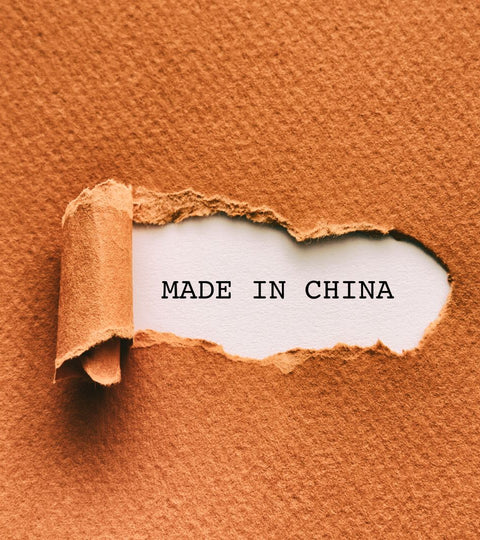Can ‘Made in China’ ever go green?
When we read ‘made in China’, we automatically think of words such as cheap, accessible, high-end replacement products. Is it just a stigma and where does it come from? As the world’s largest apparel exporter, China plays a crucial role in the fashion industry’s sustainability efforts. While some of the country’s manufacturers remain highly polluting, others are now pioneering lower-impact solutions.

China's success as the top manufacturer on a global scale can be attributed to its low labour costs. On top of that, government regulations have historically been lenient or nonexistent, and a lack of proper business taxes has allowed companies to bypass ethical concerns without repercussions. China's status as the most populous country in the world means that the workforce will always be abundant. Until recently, individuals continuously migrated to China's large cities, providing factories with a vast pool of potential employees to choose from. Companies consequently kept wages low, taking advantage of the surplus of workers who needed jobs. As a result, China has become a manufacturing giant, able to disregard its unethical practices while boosting its economy and increasing the poverty gap.
China’s pledge to go carbon neutral by 2060, announced last September, took a lot of world leaders by surprise. The country is one of the highest emitters in the world, so achieving this goal could mean great progress in slowing climate change. Is a carbon neutral China realistic? And can we imagine a sustainable ‘made in China’?
A greener future
As one of the largest carbon emitters globally, China is aware of its impact on the environment and how its factories contribute to this. President Jinping is taking bold steps towards changing the "made in China" narrative by implementing carbon sequestration practices: he plans to clamp down on industries that hinder China from achieving its net-zero targets while considering the country's economic viability. The fashion industry, which accounts for 10% of global carbon emissions, is one area China is targeting for improvement. This industry is notorious for child labour, excessive waste and fast-paced production but nonetheless, many companies, brands and regulatory agencies have emerged in recent years to mitigate these concerns, such as Hemp Fortex.

Hemp Fortex is a manufacturing company founded in 1999 that believes in creating high-quality, luxurious clothing and accessories that give back to the environment, rather than just extracting resources. The company leads the way in sustainable fashion, not only in China but worldwide. Their facilities are all managed internally and adhere to strict audits and standards. Additionally, the enterprise only uses EU-approved dyes and chemicals, carefully monitoring its water usage.
Each season, Hemp Fortex embraces the latest sustainable strategies in production, resulting in a wide reach with the lowest possible environmental impact. The company runs manufacturing facilities around the world to ensure that it stays at the forefront of sustainable fashion!
Hemp Fortex also cares about its impact on humanity. Recently, the company established its own foundation to assist those with physical disabilities, providing financial and day-to-day support. By utilising hemp, organic cotton, recycled PET and tencel, the company is setting a new benchmark for a sustainable "made in China" tag that emphasises quality over fast convenience.
Many other Chinese manufacturers have also embraced sustainability practices in their operations: they are investing in cleaner technologies, implementing energy-efficient processes, reducing waste generation, and adopting sustainable sourcing and supply chain practices. Additionally, Chinese companies are increasingly recognizing the importance of social responsibility, including fair labour practices and workers' welfare.

However, it is essential to note that sustainability is not solely dependent on the country of origin but also on the specific practices and policies of individual companies. While some Chinese manufacturers prioritise sustainability, many others may not. It is crucial for consumers and businesses to assess the sustainability credentials of specific products and companies rather than relying solely on the country of origin. Sustainability is a global challenge that requires collaboration and efforts from all countries, not just China. It is important to promote sustainable practices throughout the entire supply chain, from raw material extraction to product disposal, regardless of the country of origin.
[info sourced on businessoffashion.com and veshinfactory.com
All images sourced on canva.com]

